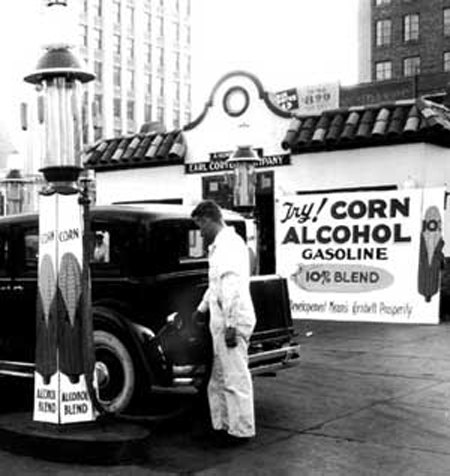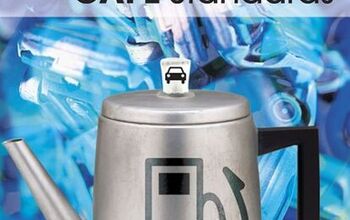CAFE (Corporate Average Fuel Economy) Regulations Must Die… Still
The United States operates special courts to deal with taxes and bankruptcies. The issues are considered too complex and specialized for regular courts to adjudicate. So if the judiciary accommodates its own intellectual shortcomings, why can’t Congress do the same? The branch of the government with the lowest approval ratings (a whopping 25 percent according to this week’s Newsweek poll) spent this week contemplating an issue it does not, cannot fully comprehend: CAFE standards.
The U.S. Senate is allegedly the “smarter” chamber of Congress. Last Thursday, by a 65-27 vote, this august body passed a piece of automotive-related legislation fit only for a press release: “We love the environment!” In so doing, they raised the CAFE requirement from 22.7 miles per gallon to a seemingly stratospheric 35 miles per gallon.
This sounds good, if like most members of Congress, your knowledge of automobiles is restricted to driving them into bodies of water (Ted Kennedy D-MA) or barricades (Patrick Kennedy D-RI), being indicted for stealing them (Darrell Issa, R-CA) or careening into utility poles (John Sweeney, R-NY). For anyone who knows anything about cars, the CAFE legislation is at best meaningless; at worst, it’s God awful.
The new legislation represents the first raise of the CAFE standards since 1989. That would make it 18 years, if it went into effect today. But it doesn’t. Under the bill’s supposedly strict provisions, the 35 mpg standard kicks-in in 2020.
Of course, the thirteen year delay gives the automakers, car manufacturers, lobbyists, legislators and presidents thirteen years to put the issue on the back-burner, to find a new hot issue in need of “reform,” over which our elected representatives can posture, preen and prevaricate. The story may not even make news in 2014, when a clever page slips the postponement into a defense contract adopted at 3AM.
But the legislation’s failure isn’t related to the headline mpg provisions. As always, the devil’s in the details.
As this website has mentioned before, the agency in charge of the law’s implementation has changed the official formula used to establish a manufacturer’s light truck (pickups, SUVs) fleet averages. Instead of the current calculations (a simple fleet average), the mpg requirement will soon be based on an average spread across a number of vehicles, based on each model’s “footprint” (wheelbase x track width/144 = square footage), combined in whatever way the manufacturer sees fit, provided the combined average reaches the required overall number.
Like I said, it's a tax code on wheels. But basically, manufacturers can now create their own formula to arrive at the mandated overall average. Even more basically, if The Big 2.8 builds more big fuel-efficient pickup trucks and SUVs, they don’t have to sell a bunch of smaller fuel efficient pickup trucks and SUVs. Vehicles they’re not particularly good at making. Vehicles they can’t sell.
What’s wrong with that? Cheating. More specifically, the legislation maintains the E85 loophole that credits vehicles that can run on the ethanol blend with higher mpg— even though the vast majority of these SUV’s can’t access an E85 pump and get FEWER mpg when they do so.
And now the kicker: according The National Highway Traffic and Safety Administration (NHTSA) website, “The agency is seeking information in anticipation of obtaining statutory authority to reform the passenger car CAFE program and to set standards under that [footprint] structure for MY 2010 – 2017 passenger cars.”
What’s the bet they’ll get that authority? What’s the bet the manufacturers will E85 their way to compliance, and find other ways to play the system? Meanwhile, the new legislation contains another Detroit-friendly provision: the elimination of the “two fleet” rule.
Under current regulations, manufacturers’ fleets are separated into two distinct groups: imported and domestic vehicles. So Chevrolet can’t use frugal Korean-made Aveos to “average out” less-fuel efficient American and Canadian-made Corvettes and Impalas. If the legislation becomes law, they can.
This is a huge change: a mitzvah for Detroit and a calamity for the United Auto Workers (UAW). Simply put, you can kiss American small car production goodbye. Given The Big 2.8’s UAW labor costs, there is no way on God’s green Earth Ford, GM or Chryslerberus will continue building low-margin small cars on U.S. soil. They will import them from Korea, China, India or any other low-cost country they can find.
Needless to say, this is madness. At the risk of agreeing with GM Car Czar Maximum Bob Lutz, the CAFE law is designed to force Americans into fuel efficient cars they’ve proven time and time again they don’t want (50k Prii month? Big whoop.) While that idea may prove no impediment to many legislators, the more important truth is that it simply doesn’t work.
If you accept the goal, the only fair and effective way to get Americans to choose more fuel efficient automobiles, and thusly “incentivize” manufacturers to build them, is to raise the price of fuel.
Latest Car Reviews
Read moreLatest Product Reviews
Read moreRecent Comments
- Jeff Corey, Thanks again for this series on the Eldorado.
- AZFelix If I ever buy a GM product, this will be the one.
- IBx1 Everyone in the working class (if you’re not in the obscenely wealthy capital class and you perform work for money you’re working class) should unionize.
- Jrhurren Legend
- Ltcmgm78 Imagine the feeling of fulfillment he must have when he looks upon all the improvements to the Corvette over time!


































Comments
Join the conversation